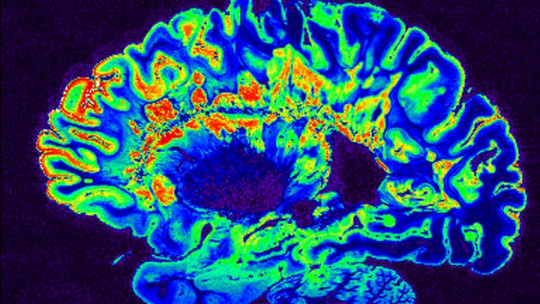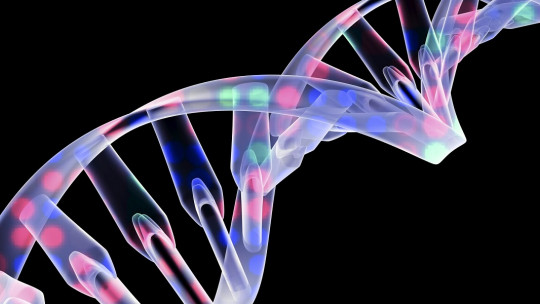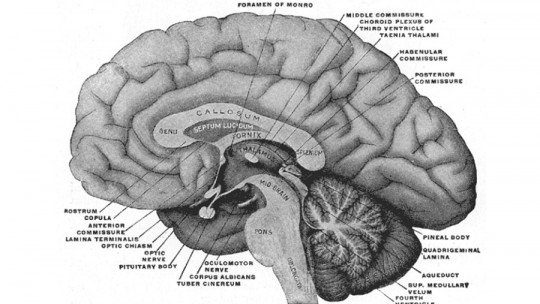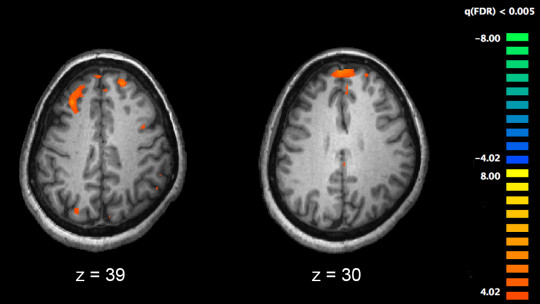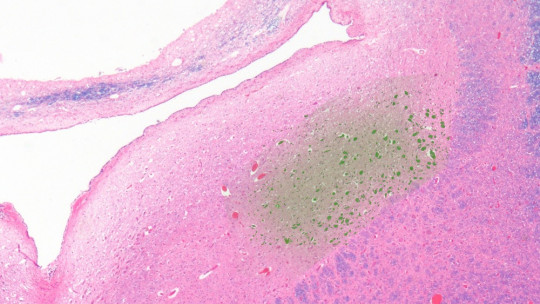Attention-deficit/hyperactivity disorder (ADHD) has a genetic component, but it is not specifically inherited from a parent. There is a significant genetic influence, but there are also other environmental and social factors. In general terms, ADHD is a clinical condition that is characterized by excessive difficulty in maintaining attention focus, added to a high level of impulsivity and body mobility.
To detect it correctly, mental health professionals can request a series of medical studies to corroborate genetic alterations. Even so, the inheritance of ADHD is complex and multifactorial. In this PsychologyFor article, we will provide you with information about whether ADHD is inherited from the father or mother
Is ADHD hereditary?
From a biological point of view, there is scientific evidence that suggests that attention deficit hyperactivity disorder (ADHD) has a strong genetic influence and? can be hereditary Additionally, family members of people with ADHD have a higher risk of also developing the disorder compared to the general population. Discover in this article the Types of ADHD and their characteristics.
However, the inheritance of ADHD is complex and is not limited to a single gene. Genetics is not the only factor that determines the presence of attention deficit hyperactivity disorder. Rather, it involves the interaction of several genes, as well as environmental and other non-genetic factors. In this sense, environmental factors have a notable influence on the development of intellectual, emotional and behavioral capacities.
Is ADHD inherited paternally or maternally?
There is no definitive answer as to whether ADHD is inherited from the father or the mother. The inheritance of attention deficit hyperactivity disorder (ADHD) is complex and multifactorial, and cannot be attributed solely to one of the parents. The Genetic predisposition to ADHD can come from both parents, and the interaction of several genes and environmental factors plays a role in the expression of the disorder. We see it below:
- Gene-environment interaction: The interaction between genetic and environmental factors is key in the expression of ADHD. For example, a child with a genetic predisposition to ADHD may be at increased risk of developing the disorder if he or she is exposed to certain adverse environmental factors, such as maternal smoking during pregnancy or exposure to lead in the environment.
- Environmental factors: have a significant impact on their development and expression. These may include prenatal factors (such as exposure to toxins or substance use during pregnancy), perinatal factors (such as complications during childbirth), and postnatal factors (such as family stress or the quality of the educational environment).
- Polygenicity: ADHD is not caused by a single gene, but by the interaction of multiple genes. Several genes have been identified that may be associated with ADHD, but none seems to be decisive on its own. Genes related to dopamine, serotonin, and other neurotransmitters have been most extensively studied in relation to ADHD.

Is ADHD always hereditary?
Attention deficit hyperactivity disorder (ADHD) it is not always hereditary While genetics play a major role in predisposition to ADHD, not everyone with the disorder has a family history of ADHD. Furthermore, not all people with a family history of ADHD develop this clinical condition.
Studies suggest that there is a genetic predisposition to ADHD, but environmental factors are also known to play a significant role in its development. We see them below:
- Prenatal exposure to toxins: such as alcohol, tobacco, drugs and unlimited consumption of medications. They promote the appearance of ADHD symptoms during the first years of life.
- Stress during pregnancy: Maternal stress can increase fetal levels of cortisol, which is the main stress hormone. High levels of cortisol can affect the development of the fetal nervous system and the regulation of the neurotransmitter dopamine, which is implicated in ADHD.
- Nutrition: The intake of foods that do not provide the nutrients necessary for a person’s neurological development is another of the predisposing factors for this clinical condition.
- Familiar surroundings: A stressful family environment, with constant conflict, lack of emotional support or traumatic events, can increase the risk of developing ADHD or worsen symptoms in those who already have it.
- Complications during childbirth – Physical injuries during childbirth, such as head trauma, can affect the baby’s neurological development and increase the risk of neurodevelopmental disorders, including ADHD. Additionally, lack of oxygen during childbirth can damage the baby’s brain cells, which can increase the risk of neurobiological problems, including ADHD.
- Unlimited exposure to electronic devices – Provide constant stimulation through images, sounds and interactive games. This overstimulation can make it difficult to concentrate on other activities that require sustained attention, which can contribute to ADHD symptoms, such as difficulties maintaining attention and concentration.
This article is merely informative, at PsychologyFor we do not have the power to make a diagnosis or recommend a treatment. We invite you to go to a psychologist to treat your particular case.
If you want to read more articles similar to Is ADHD inherited from the father or the mother? we recommend that you enter our Neurosciences category.
Bibliography
- Aguilar Rebolledo, F., Jiménez Ortiz, MA (2021). Attention deficit disorder and hyperactivity. Updated review. Medigraphic Magazine, 8 (1), 39-49.
- Rusca-Jordán, F., Cortez-Vergara, C. (2020). Attention deficit hyperactivity disorder (ADHD) in children and adolescents. A clinical review. Journal of Neuropsychiatry, 83 (3), 148-156.

